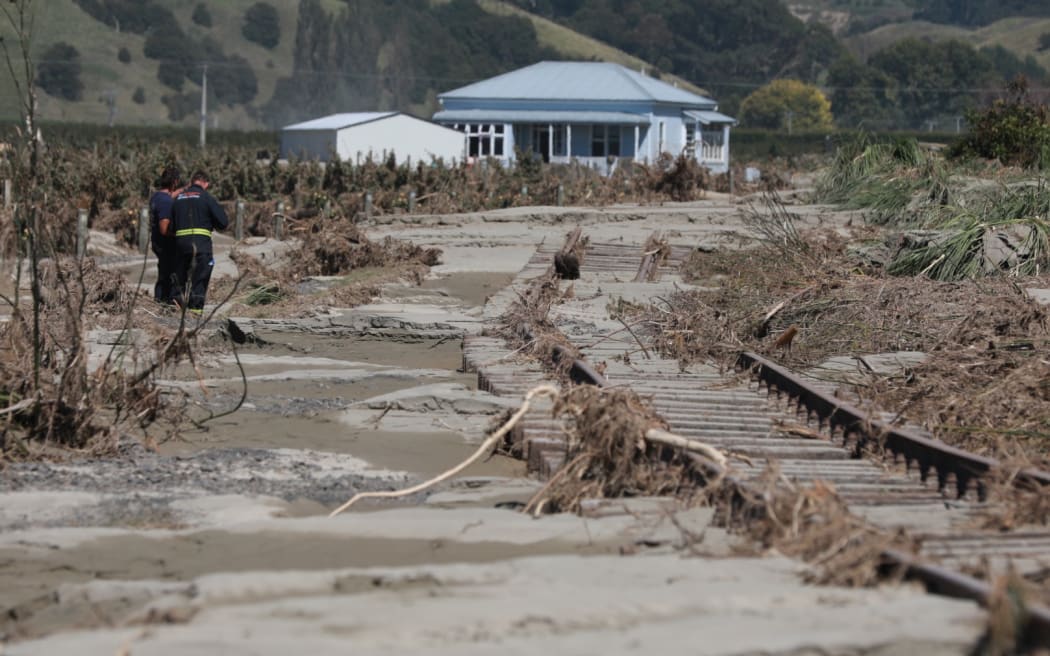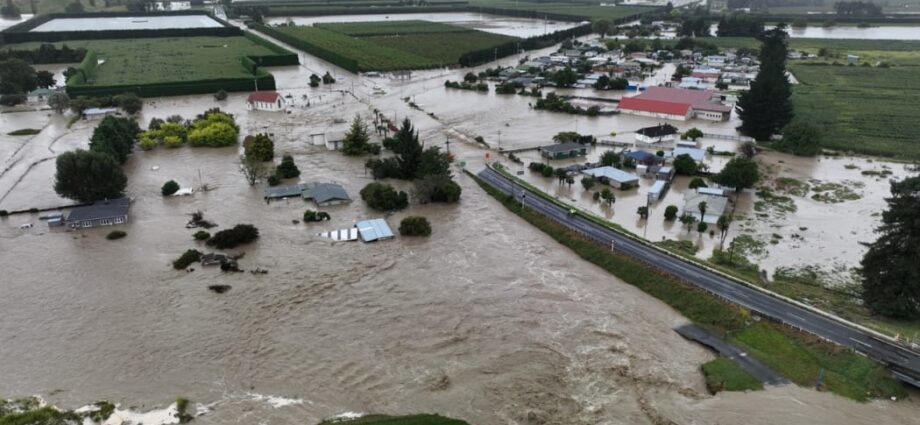PHOTO: Hundreds of properties in Hawke’s Bay were damaged by Cyclone Gabrielle. Photo: Supplied / Dawson Bliss
Property experts are warning owners of Cyclone Gabrielle in Hawke’s Bay to take care when dealing with investment companies wanting to snap up their houses.
There are huge question marks looming around the future of flood-hit properties as insurance, EQC claims and government decisions on land use are still up in the air.
The waiting game is tough for people who can’t live in their homes, and some may be desperate to get out.
That’s where As Is Where Is comes in – a property investment company advertising on local radio that it will buy flood-damaged property.
The investor says it will take your home off your hands for cash, no matter the location or condition.
It claims to be a zero catch offer with no commissions or extra fees, an appraisal and offer within 48 hours of contact, and a contract finalised within the week.
But is it really a good deal for those desperate to move on from the devastating effects of Cyclone Gabrielle?
Some property experts believe it is too soon for anyone to be thinking about buying or selling homes, with the cyclone hitting the region less than two months ago.

There are fears investors may prey on vulnerable people . Photo: RNZ/ Nick Monro
OneRoof editor Owen Vaughan is concerned investors looking to buy ruined homes may be preying on people’s vulnerabilities.
“That would seem like a very predatory action to be offering someone that kind of financial settlement.”
He believes there are significant risks for the seller.
“One, you don’t know where the value of your property is going to go and you don’t know what the insurance process is going to lead to.
“Two, you’re not too sure if that investor is going to settle on that property. We’ve seen cases in the past year where amateur developers had done deals, put in place long settlement dates and just reneged on it.”
EQC claim and insurance lawyer Mobeena Hills said if flood-affected people sell now they could lose out on hundreds of thousands of dollars.
“Home owners have paid their premiums therefore there is potential to lose out on their insurance and the true value.
“If they haven’t had the extent of damage assessed and properly quantified by appropriate engineers and quantity surveyors, then they may lose the appropriate value of their property by selling as is, where is to a property investor who may make a lowball offer”.
But As Is Where Is said it is helping victims of the North Island floods by providing a stress-free way for residents to start anew.
RNZ spoke to As Is Where Is owner Simon Hunter and he did not want his comments published.
According to the website, As Is Where Is started after the Christchurch earthquakes and uses its own funds to buy uninsured homes, or houses undervalued by insurers, to renovate them for the rental market.
OneRoof’s Vaughan said many investors took up this same opportunity after Christchurch after the earthquakes.
However, he said they only began to start buying “as is” property years after the quakes when insurance and EQC claims were exhausted.
President of the Hawke’s Bay Property Investors Association Sharon Cullwick said she would not invest in cyclone-hit homes right now.
She said repair costs are high, it is hard to get insurance, and there is too much uncertainty about where people will be able to build in the future.
“You won’t be able to get insurance or if you do get insurance it will be very expensive … unless you’re going to self-insure which is quite risky.
“[And] if they don’t let people build in certain areas you’d be buying a house that has no value to it whatsoever.”
Vaughan agrees that any investors moving in on cyclone-hit property may be taking an incredible risk.
“They’ll have to stump up the cash themselves because no bank will touch those properties with a barge pole,” he said.
READ MORE VIA RNZ
MOST VIEWED NEWS
- THE ANCIENT STONE CITY: Proof of NZ civilisation before Kupe
- Real estate agent Sally Ridge’s full-scale renovation of Auckland mansion
- Real estate agent turns himself in | WARNING: DISTRESSING CONTENT
- Eye surgeon accused of murdering wife puts Remuera mansion up for sale
- Time travelling homes | WATCH
- Sally Ridge awarded $33,000 in court costs over Auckland property
- Why are some F45 gyms collapsing? | WATCH
- Claims about Jacinda Ardern’s wealth
- The Cardrona Cabin | WATCH
- Cyclone-affected homes may need to be rebuilt off the ground




















